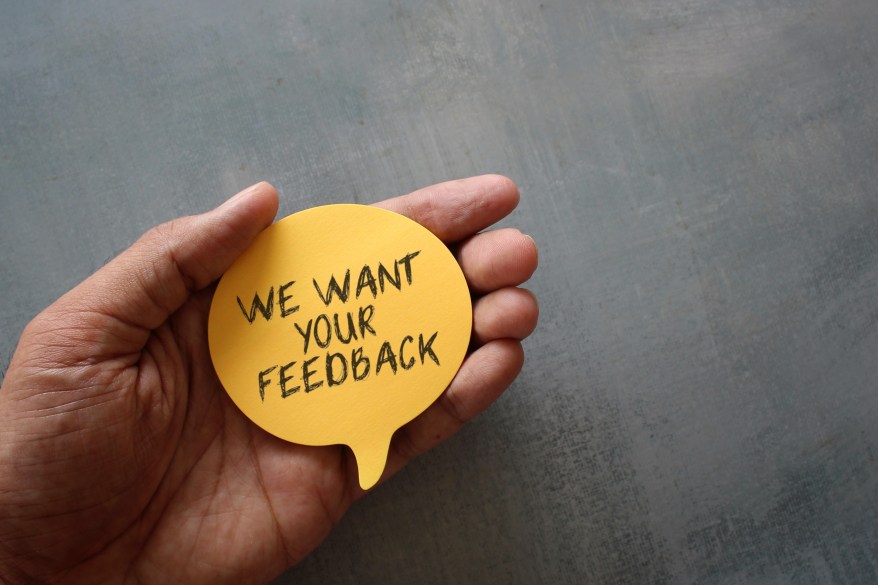Communication is such a significant part of professional life. We communicate with clients, colleagues, vendors, bosses, and people who may work on teams we manage. As crucial as it is, many professionals put little to no thought into their communication skills.
Professional communication is a sub-genre found within the study of communications. This subset encompasses written, oral, visual, and digital communication within a workplace context. It is based upon the theory of professional communications, which is built on the foundation that for an organization to succeed, the communication network within must flow fluently.
Did you know that employers consider communication one of the most important skills to have in the workplace? It is because communication allows employees to talk with their coworkers about plans, problems and processes. With effective communication, employees can streamline their workflows and ensure that every person on their team is on the same page.
Professional communication is the secret sauce to success in the business world. It’s the magic wand that enables individuals and teams to share information, collaborate, build relationships , and accomplish their objectives. Remember, in the realm of professional communication, it’s not just about getting your point across.
Effective communication facilitates the smooth flow of information, reduces errors, and prevents misunderstandings. By improving their communication skills, individuals can enhance productivity and reduce the time and resources spent on rework or corrections. In a nutshell, professional communication courses provide individuals with the opportunity to acquire new communication skills, refine existing ones, and stay abreast of the latest communication trends and practices.
Professional communication is a specialty subfield of communication that pays close attention to the theories and practice of communication within professional contexts. Fields that utilize professional communication include athletics and sport, the arts, heath and family care, new media, small business and entrepreneurship, consulting, education and spiritual services. Professional communication also plays an important role in the fields of medicine, law, psychology and philosophy.
Effective professional communication is crucial in any professional setting, but it is not without its challenges. Overcoming professional communication obstacles requires awareness, understanding, and the implementation of appropriate strategies. Language barriers can hinder this form of communication , particularly in multicultural work environments.
Our ability to communicate effectively can have an impact on the results we get when working with others. That’s why every professional should take time to improve their communication skills. Leaders should also consider teaching communication etiquette to employees. By prioritizing effective communication, businesses can enhance customer satisfaction, build trust, and establish a positive reputation in the market.
Working as a team requires people to communicate regularly. People need to listen to other people’s ideas for them to be able to communicate effectively. Good communication builds a positive working relationship hence improving the productivity of others. In the workplace, good professional communication can inspire others. People are not born good presenters and communicators. Some of these skills are mastered with time.
What can you do to improve your communication skills? Read on to learn a few tips on being a more effective professional communicator. In this blog, we’ll uncover the mysteries of professional communication, equipping you with essential skills for workplace communication. The following are some professional communication examples:
#1 Be Clear and Concise
One of the most common position requirements across employment industries is excellent verbal and written communication skills. How an individual communicates with supervisors, professors, colleagues, fellow students, clients, and customers will assist in advancement and enhance their credibility.
A concise message is more memorable and leaves a long-lasting impact on the reader.
Verbal communication is the most common form of communication in the workplace. Expressing your thoughts and ideas clearly and using appropriate language and tone is essential for conveying messages accurately and avoiding misinterpretations. By honing your verbal communication skills, you can articulate your thoughts effectively, engage others in meaningful conversations, and ensure that your messages are understood as intended.
This isn’t to say that you should avoid long explanations or communications at all costs. Sometimes, you can’t avoid it. However, you should avoid being long-winded whenever possible. Being clear and concise is a way of respecting the time and attention of others. Whether it is a phone call, an email, or any other communication, try to make it short and to the point.
Using an email as an example, it is good to start with a greeting. After that, let the recipient know what you need. You can then provide any background information relevant to why you need it or to motivate the recipient to provide it. Another good tip is to always read emails before sending them. Look for unnecessary information and filler so you can remove it before sending. You can also look at how you structure information to make it more digestible for readers.
#2 Maintain Professionalism
Conflicts are an inevitable part of the workplace. However, effective communication skills enable individuals to handle conflicts and difficult situations constructively.
It may seem obvious, but it must be stated: always maintain professionalism in communications. Think about the other person and determine the correct tone. For many, a more formal tone will be required. However, you may also have close co-workers or clients you have worked with for years. In some of these cases, it might be more effective to use a casual tone.
Communication skills are critical in practically all workplaces, and many day-to-day tasks performed at work are related to the field in some way.
Even in communications with a casual tone, there is a level of professionalism you must maintain. For example, stick to professional subjects and avoid gossip. If there is conflict, maintain your composure and don’t express anger. You want to express more positive than negative energy. Wait before sending emails if you are angry or irritated. It can also help to learn how to recall an email just in case you accidentally send something you shouldn’t.
#3 Practice Active Listening
Some of us have trouble listening to others. It is especially true in situations where we have something we want to achieve with a conversation. Our eagerness to say what we need to say might cause us to simply wait for the other person to stop talking rather than listen to what they have to say. However, being an active listener can help us achieve our goals with communication.
Some indicators of strong professional communication include active listening, awareness of non-verbal cues and body language, proactive approach, timeliness/promptness of responses, and the ability to frame communication with respect to diversity of learning styles, varied individual communication abilities, and cultural differences. Demonstrate engagement and interest by demonstrating active listening, appropriate eye contact, and appropriate language.
People tend to trust you when they feel heard. Active listening is more than mere listening — paying attention, asking relevant questions, and demonstrating empathy are essential aspects of active listening. It shows respect and understanding, which fosters meaningful conversations.
Emotional intelligence enables you manage emotions to empathize with others, respond appropriately to different situations, and maintain a harmonious work environment. By cultivating emotional intelligence, you can enhance your professional communication skills, build trust, and establish productive connections with colleagues and stakeholders.
Being a good listener starts with giving the other person your full attention. Put down your phone, face the other person, and maintain eye contact. Listen to the words they are saying and try to understand their side of the conversation. Don’t interrupt. Once they are done talking, address the information and points they made. Effective listening will not only make you better at dealing with others, but it will also help you get more from the conversations you have.
Active listening allows you to understand the speaker’s perspectives, needs, and concerns. It requires focusing on the message, asking clarifying questions, and demonstrating empathy. By practicing active listening, you can establish stronger connections, resolve conflicts, and foster a more inclusive and collaborative work environment.
Want to master the art of effective professional communication?
Contact Growth Hackers
#4 Prepare Before Meetings
Entering a meeting unprepared can be a recipe for inefficiency and poor communication. You could waste your time and the time of others. You may also appear unknowledgeable or unprofessional. Preparation can also ensure you convey all the information and ideas you need to get across. It can also help you strategize to achieve your goals with the meeting.
It can be anything from a billboard, a power point presentation, or a sign posted in the break room. If you can read it and look at it, more than likely it is a form of visual communication. Presentations bring ideas and visions to life and influence decision-making. A well-executed presentation has the power to captivate your audience, convey complex information with clarity, and leave a lasting impression. It combines the art of storytelling, effective visual aids, and confident delivery to engage, inform, and persuade.
Before important meetings, presentations, or conversations, take the time to gather relevant information. Create an outline with the key points you want to address and plan how you want to communicate them. Consider the perspective of others and how they might receive the information. Try to anticipate the questions or concerns they might have so you can be ready to address them.
#5 Use Proper Grammar and Punctuation
In a professional setting, written communication encompasses writing memos, letters, resumes, and more. Grammar and punctuation are imperative in written communication. Verbal communication encompasses a wide range of professional interactions, from engaging in face-to-face or phone conversations to building meaningful connections through business networking.
Try to use proper grammar and punctuation in communications. Most people won’t be too harsh if your spoken communication isn’t grammatically sound, but it matters in written communication. This is true for everything from email marketing text to letters you might send. The tip for this is simple: take the time to review written communication before sending it. You might even want to consider having a second person read it if the text is important. Various apps can also help with improving grammar and punctuation.
#6 Stay Within Professional Communication Channels
Your company probably has an array of established communication channels for you to use with colleagues and clients. If you are your own boss, you should consider setting up channels dedicated to professional communication. It just looks more professional to use dedicated phone numbers and email addresses.
Using your personal phone number or email can also cause problems. First, it might open the door to mixing your personal and professional life. It might also cause conflict if it appears you are trying to go outside official channels. Many companies also have policies barring the use of personal emails and phones. There are various ways to create a business email, and you have options for setting up second phone numbers for professional communication. For example, there are smartphone apps you could use to open a second phone number.
#7 Exercise Discretion and Confidentiality
You may have access to a lot of confidential or sensitive information about your company or clients. Even if the information isn’t governed by a privacy law like HIPAA, you need to be careful with what you share. It could be valuable proprietary information about the company or client data you need to protect. You might also have privacy agreements with clients that could result in a lawsuit if violated. Be careful when you speak, and always review information in emails before sending them. This is another reason why learning how to unsend an email can be useful.
How to improve professional communication skills? Developing strong professional communication skills is an ongoing process, so incorporate these practices to enhance your abilities. Embrace technology In today’s digital age, leveraging communication tools can significantly enhance your professional communication skills.
#8 Make your Expectations Clear
Professional communications often have a goal. Understand this goal and make sure you communicate what you expect from the other side. This will let them know what you want them to do. Whether it is a deadline for a project or information you need, tell the person your expectations.
Conversely, you should try to understand the expectations and goals of the other person. If they have something they need from you, try to meet their request, or explain why you can’t. Understanding and addressing the expectations of others is a part of two-way communication.
#9 Reduce Uncertainty
No matter how good of a communicator you are, there will always be situations where things appear unclear. The biggest problem in this regard is that so many people fail to take steps to limit uncertainty. They worry that they might seem unintelligent or don’t want to take the time to clarify issues. As a result, it leads to more miscommunication and misunderstanding.
Don’t hesitate to ask for clarification if anything is unclear in professional communication. If you don’t understand, follow up with questions. Most colleagues, managers, and clients would rather you ask a question than try to guess when things are unclear. Asking questions can also save you from lost productivity or from issues that may arise from doing things the wrong way.
Supercharge your professional communication skills today!
#10 Make Sure to Follow Up
Most professional communications don’t end with the completion of a conversation or the response to an email. Professional communications often require several sessions of back and forth. It might also span a variety of different channels or modes of communication. That makes following up an important part of being good at professional communication. You might also need to follow up if you have not received the desired response from other parties.
A good example is following up after a meeting. If you had a meeting with some colleagues or a client, you might want to reach out the next day or after a few days. You can reinforce the points you made or see if the other parties have any questions. If it is about a project or something you are working on together, you could reach out to ensure the other people understand their roles and responsibilities. In some cases, a follow-up can also just be a measure to let other people know you appreciate their time and attention.
#11 Ask for Feedback
Requesting feedback demonstrates your commitment to growth and development. Embrace constructive criticism and view it as an opportunity to learn and refine your skills . Incorporate the feedback you receive into your practice and make the necessary adjustments to enhance your communication effectiveness.
It isn’t always easy to identify your shortcomings as it concerns communication. You’ll always understand the points you’re trying to get across and the objectives of your communications. That can make feedback from others invaluable. If you want to take your communication skills to the next level, request input from colleagues, supervisors, and clients. Ask them for constructive criticism concerning your tone, clarity, and effectiveness. Listen to the feedback and find ways to incorporate it into your communication going forward.
Closing Thoughts to Become a Professional Communicator
Some indicators of strong professional communication include active listening, awareness of non-verbal cues and body language, proactive approach, timeliness/promptness of responses, and the ability to frame communication with respect to diversity of learning styles, varied individual communication abilities, and cultural differences.
Facial expressions, body language, gestures, and tone of voice can convey emotions, intentions, and attitudes. Being mindful of your nonverbal signals and understanding how they are perceived by others can help you project confidence, respect, and engagement. Developing strong nonverbal communication skills enables you to align your verbal messages with your nonverbal cues, enhancing the overall effectiveness and impact of your communication.
By prioritizing effective communication, businesses can enhance customer satisfaction, build trust, and establish a positive reputation in the market. Professional communication skills Mastering professional communication skills is necessary in today’s workplace. By mastering these skills, you can enhance your ability to collaborate, build relationships, and achieve desired outcomes in your professional endeavors.
With these tips, you can navigate the world of professional communication with confidence. You’ll get better results when dealing with clients and colleagues, and you’ll have greater success in your communications.
But remember, being a good communicator is a continuous process. Good communicators are always looking for ways to refine their skills.
As communication is a critical aspect of any professional setting, it is essential to continuously develop and refine communication skills to succeed. Participate in professional development: Attend workshops, seminars, or courses focused on communication skills development. These opportunities provide valuable insights, strategies, and networking possibilities.
GrowthHackers is one of the top growth hacking agencies helping businesses from all over the world grow. There is no fluff with Growth Hackers. We help entrepreneurs and business owners master the art of effective professional communication with our proven tips, increase their productivity, generate qualified leads, optimize their conversion rate, gather and analyze data analytics, acquire and retain users and increase sales. We go further than brand awareness and exposure. We make sure that the strategies we implement move the needle so your business grow, strive and succeed. If you too want your business to reach new heights, contact Growth Hackers today so we can discuss about your brand and create a custom growth plan for you. You’re just one click away to skyrocket your business.







